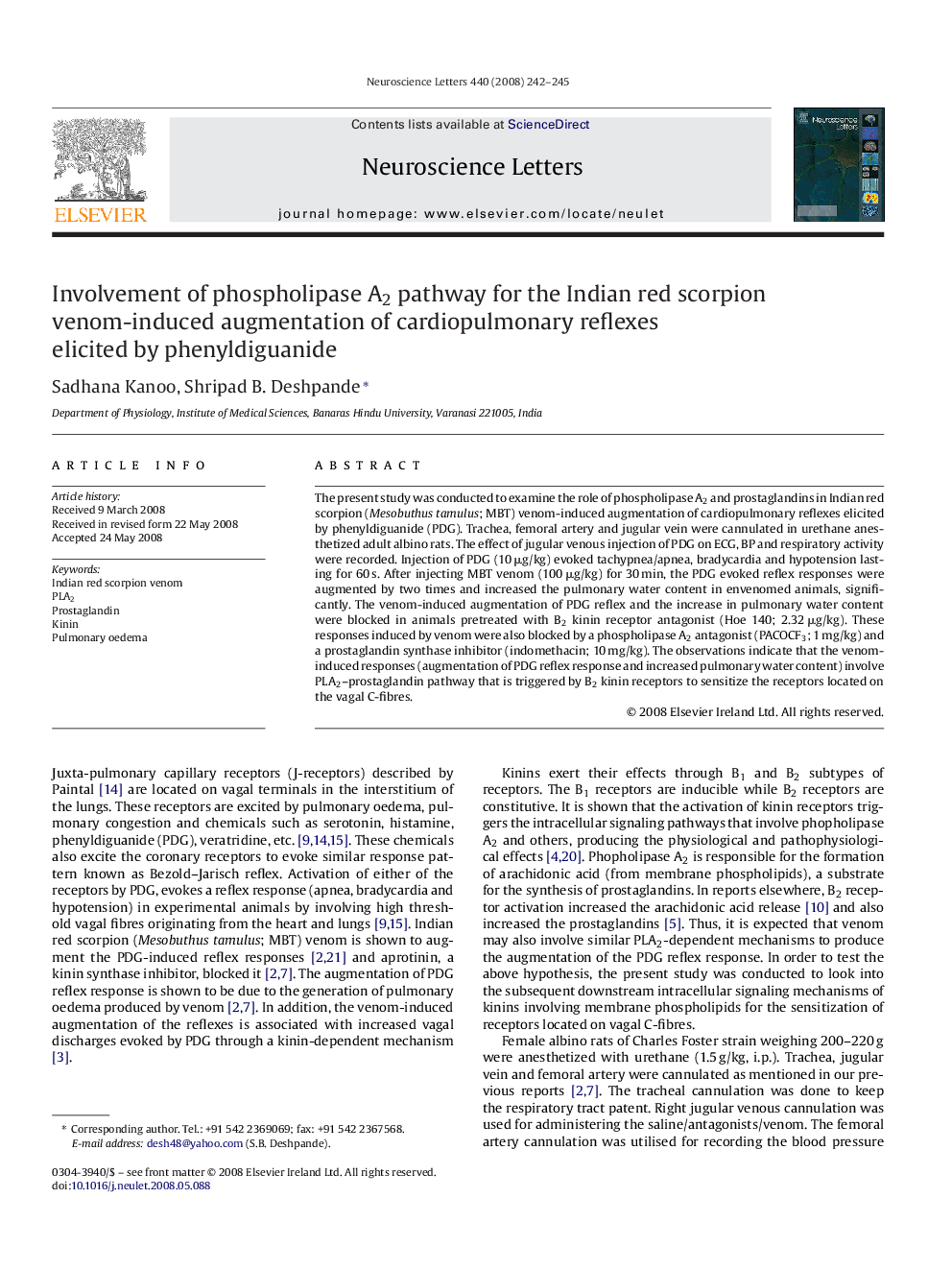| Article ID | Journal | Published Year | Pages | File Type |
|---|---|---|---|---|
| 4347700 | Neuroscience Letters | 2008 | 4 Pages |
The present study was conducted to examine the role of phospholipase A2 and prostaglandins in Indian red scorpion (Mesobuthus tamulus; MBT) venom-induced augmentation of cardiopulmonary reflexes elicited by phenyldiguanide (PDG). Trachea, femoral artery and jugular vein were cannulated in urethane anesthetized adult albino rats. The effect of jugular venous injection of PDG on ECG, BP and respiratory activity were recorded. Injection of PDG (10 μg/kg) evoked tachypnea/apnea, bradycardia and hypotension lasting for 60 s. After injecting MBT venom (100 μg/kg) for 30 min, the PDG evoked reflex responses were augmented by two times and increased the pulmonary water content in envenomed animals, significantly. The venom-induced augmentation of PDG reflex and the increase in pulmonary water content were blocked in animals pretreated with B2 kinin receptor antagonist (Hoe 140; 2.32 μg/kg). These responses induced by venom were also blocked by a phospholipase A2 antagonist (PACOCF3; 1 mg/kg) and a prostaglandin synthase inhibitor (indomethacin; 10 mg/kg). The observations indicate that the venom-induced responses (augmentation of PDG reflex response and increased pulmonary water content) involve PLA2–prostaglandin pathway that is triggered by B2 kinin receptors to sensitize the receptors located on the vagal C-fibres.
